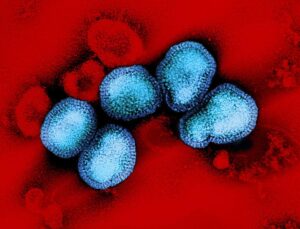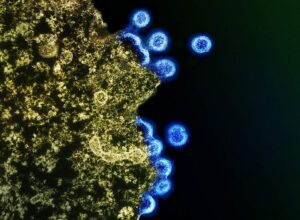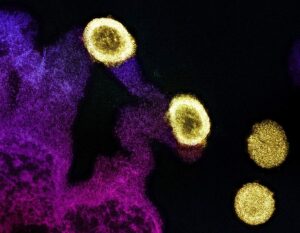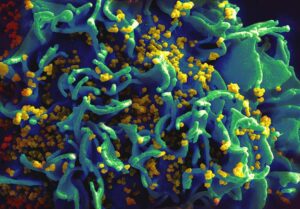A diet that emphasizes minimally processed plant-based foods but still allows for modest amounts of meat and dairy may not only provide a major benefit for the environment, it could also help you live longer.
The risks of deaths due to cancer, heart disease, and lung disease all dropped for those who most conscientiously followed this eating pattern. Higher adherence was also linked to lower greenhouse gas emissions and other positive climate change impacts.
“We were impressed that every major cause of death was lower among participants who most closely adhered to the planetary health diet — and the size of environmental benefits was remarkable,” says an author of the study, Walter Willett, MD, a professor of epidemiology and nutrition at the Harvard T.H. Chan School of Public Health. “Shifting to a planetary health eating pattern can be a huge double win — better personal health now and a major contribution to a livable planet for future generations.”
Every Major Cause of Death Was Lower
The analysis was based on health data from more than 200,000 men and women who ranged in age from 27 to 70 and were free of major chronic diseases at the beginning of the study. Participants completed dietary questionnaires every four years for up to 34 years. The level of adherence was determined according to intake of 15 food groups, including whole grains, vegetables, poultry, and nuts.
The planetary health diet recommends that fully half of your diet consist of fresh fruits and vegetables, while the other half is a mix of primarily whole grains, plant proteins (beans, lentils, pulses, nuts), unsaturated plant oils, modest amounts of meat and dairy, and very little added sugars and starchy vegetables. Just under a quarter pound of red meat per week and no more than a cup of milk daily is recommended.
The study authors estimated that the top 10 percent who were most faithful to the diet had a 30 percent lower risk of premature death than those in the lowest 10 percent.
When it came to specific causes of death, high adherence was linked to the following risk reductions:
- 14 percent lower risk of heart disease mortality
- 10 percent lower risk of cancer mortality
- 47 percent lower risk of respiratory mortality
- 28 percent lower risk of neurodegenerative mortality
Dr. Willett noted that this investigation did not translate these risk reductions into additional years lived.
Environmental Factors Improve Along With Well-Being
“Planetary health and human health have a close relationship,” says Malone. “If we want to be active, enjoy the outdoors, and have clean air and water, we need to pay attention to how our dietary patterns impact the planet.”
In this study, researchers pointed out that high adherence to this type of diet was associated with 29 percent lower greenhouse gas emissions and 51 percent less land use.
Limiting consumption of dairy foods and red meat reduces greenhouse gas emissions because it circumvents the highly inefficient conversion of grain to meat and milk, according to Willett.
“This [shift away from meat and dairy] can also free up a massive amount of land that can be used for other purposes, such as reforestation, and we can avoid the continuous production of methane by ruminant animals,” he says. Reforestation is an effective way to further reduce levels of greenhouse gasses that are driving climate change.
The study authors calculated environmental impacts using summaries from dozens of previous studies that carefully documented greenhouse gas emissions and other environmental factors for specific foods, such as a glass of milk, a hamburger, and an ounce of nuts.
A Way to Make an Impact Without Giving Up Meat
Malone underscores that people can get both health and environmental benefits without going entirely vegan.
“You can start with eating less meat and more plants, eating smaller portions, and planning your meals to waste less food,” she says.
Such steps are essential for the health and well-being of every person on earth, according to Willett.
“In the end, our planet will not be livable if we don’t change the path we are on,” he says.











Post Comment